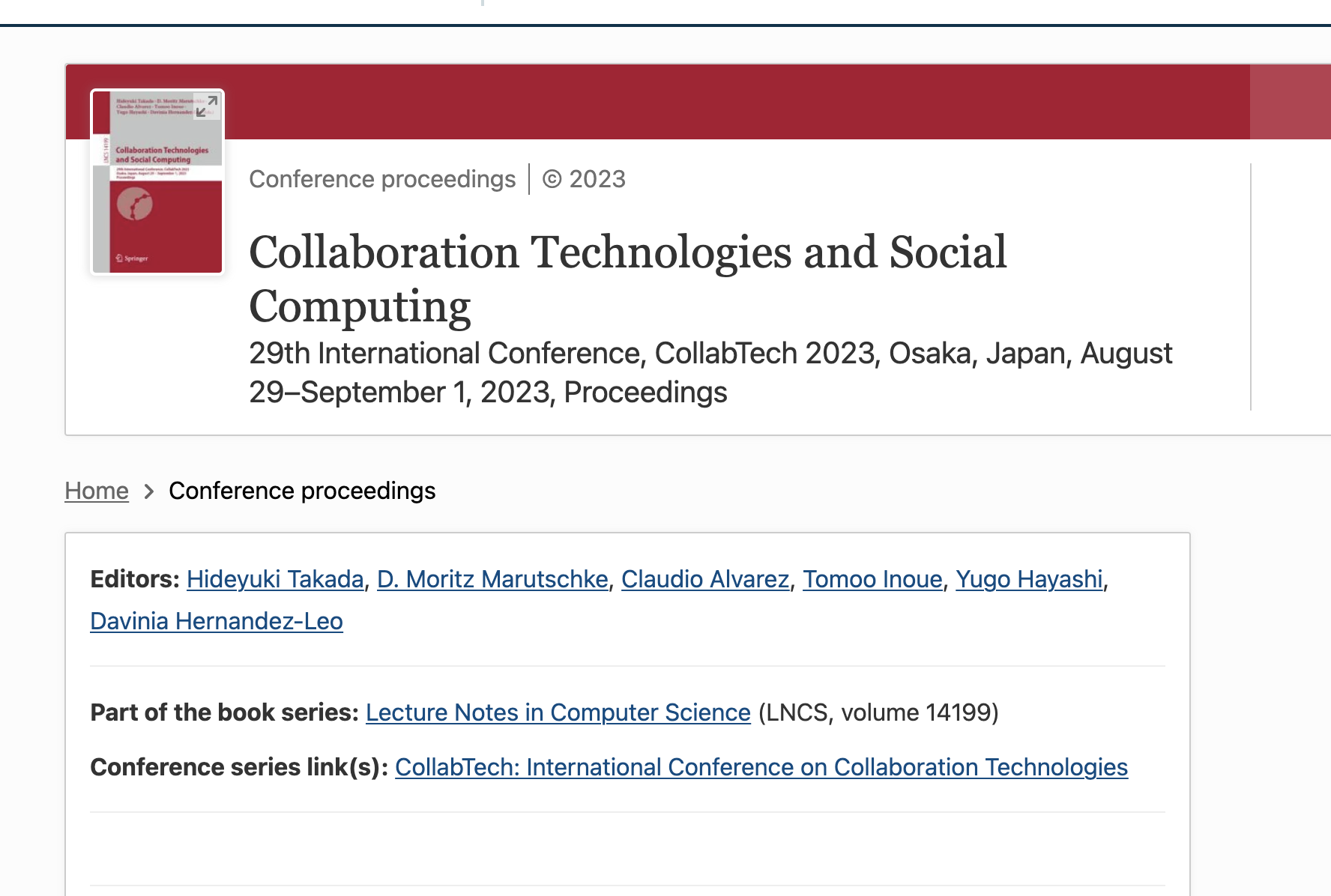TIDE at CollabTech 2023

Davinia Hernández-Leo, the head of TIDE, is a General Co-Chair of the Collabtech2023 conference. CollabTech2023 is the 29th International Conference on Collaboration Technologies and Social Computing (CollabTech 2023) is hosted by Ritsumeikan University, Osaka, Japan.
Conference proceedigns at https://link.springer.com/book/10.1007/978-3-031-42141-9
TIDE members will be also presenting the following full paper in the conference:
Emily Theophilou, René Lobo-Quintero, Roberto Sánchez-Reina, and Davinia Hernández-Leo, (2023) Students’ Generated Text Quality in a Narrative-Centered Learning Environment: Effects of Pre-Collaboration, Individual, and Chat-Interface Submissions. CollabTech2023 is the 29th International Conference on Collaboration Technologies and Social Computing (CollabTech 2023), Osaka, Japan, 101-114. https://link.springer.com/chapter/10.1007/978-3-031-42141-9_7
Abstract. Narrative-centered Learning Environments (NcLE) offer a powerful tool for enhancing students’ learning through interactive experiences. The integration of open-ended questions in NcLEs encourages students to express their thoughts, opinions, and ideas without any restrictions. While different submission formats are implemented in NcLE, little research has argued the importance of assessing their potential effects. This study, therefore, investigates how the text quality in writing varies based on different submission formats for open-ended submissions in NcLE. We proceed to analyze three types of submission formats within a narrative scripts platform; a) formal individual, b) pre-collaboration, and c) a chatbot interface. For this study, data was collected in a randomized controlled trial that involved 311 secondary school students participating in a social media literacy workshop. The quality of the submissions was assessed using an automated text cohesion and coherence analysis tool (Coh-Metrix). Our results show that having formal submission pages for open-ended questions has an effect in students’ efforts to create submissions with higher writing quality, while submissions via chatbot interfaces tend to be brief and conversational in nature. The results presented in this study have practical implications for learning technology developers and educators, as they can guide decisions related to the creation, and integration of elements to promote writing quality in online learning environments.
Keywords: Narrative-based Educational Platform · Computer Supported Collaborative Learning · Individual learning · Chat bot · Writing Quality · Text Cohesion and Coherence.
As for an authors copy of the paper at [email protected]
